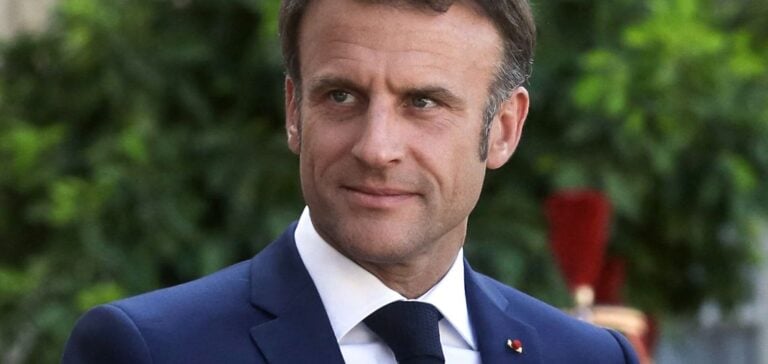The meeting between French President Emmanuel Macron and Kazakh President Kassym-Jomart Tokayev during his state visit to Paris reflects a shared commitment to deepen ties between France and Kazakhstan. This meeting marks a new stage in the strategic partnership between the two countries, with a particular focus on nuclear energy and economic cooperation.
Kazakhstan, a Central Asian country and economic ally of Russia, shares over 7,500 kilometers of border with the latter. The two leaders addressed several international issues, including the war in Ukraine, highlighting their “shared concerns.” Macron expressed his commitment to multilateralism and adherence to the United Nations Charter, noting that Russia’s invasion of Ukraine in 2022 threatens the international order and regional security. According to Macron, the situation in Ukraine exemplifies the challenge of upholding international law over the law of force, underscoring its impacts on nuclear safety, food security, and human rights.
Toward support for civilian nuclear development
On the energy front, the French president offered France’s support in developing civilian nuclear energy in Kazakhstan. Despite being the world’s largest uranium producer, Kazakhstan currently lacks the capacity to generate its own electricity. A recent referendum approved the construction of Kazakhstan’s first nuclear power plant, thus paving the way for international collaborations. Macron highlighted France’s expertise in this area, expressing his country’s interest in assisting Kazakhstan in its transition to civilian nuclear energy.
Nuclear energy represents a strategic cooperation axis for France, which possesses recognized expertise in this field. This support could also reinforce France’s position as a key player in the global energy transition.
Economic agreements and partnership on critical resources
Beyond the energy sector, the two countries signed several economic agreements. Among the key announcements, the Alstom Group, present in Kazakhstan since 2010, signed a contract to supply electric locomotives. These agreements follow a strategic roadmap adopted in Astana last year, aimed at strengthening cooperation for the exploitation of critical minerals between 2024 and 2026. These minerals are essential for technological industries and the energy transition, a sector in which France aims to intensify its international partnerships.
Cooperation on migration and bilateral agreements
Cooperation between France and Kazakhstan also extends to migration. A re-admission agreement between the two countries will enable the return of Kazakh nationals expelled from France, with re-admission terms that the Élysée describes as “highly favorable.” This agreement is the first between France and a Central Asian country and reflects the commitment of both nations to strengthen their collaboration on sensitive issues.
This state visit and the multiple agreements signed reflect the determination of both leaders to build a robust strategic partnership. In a complex geopolitical context, France and Kazakhstan seem determined to strengthen their economic and technological exchanges, while affirming their commitment to shared values and respect for international law.






















